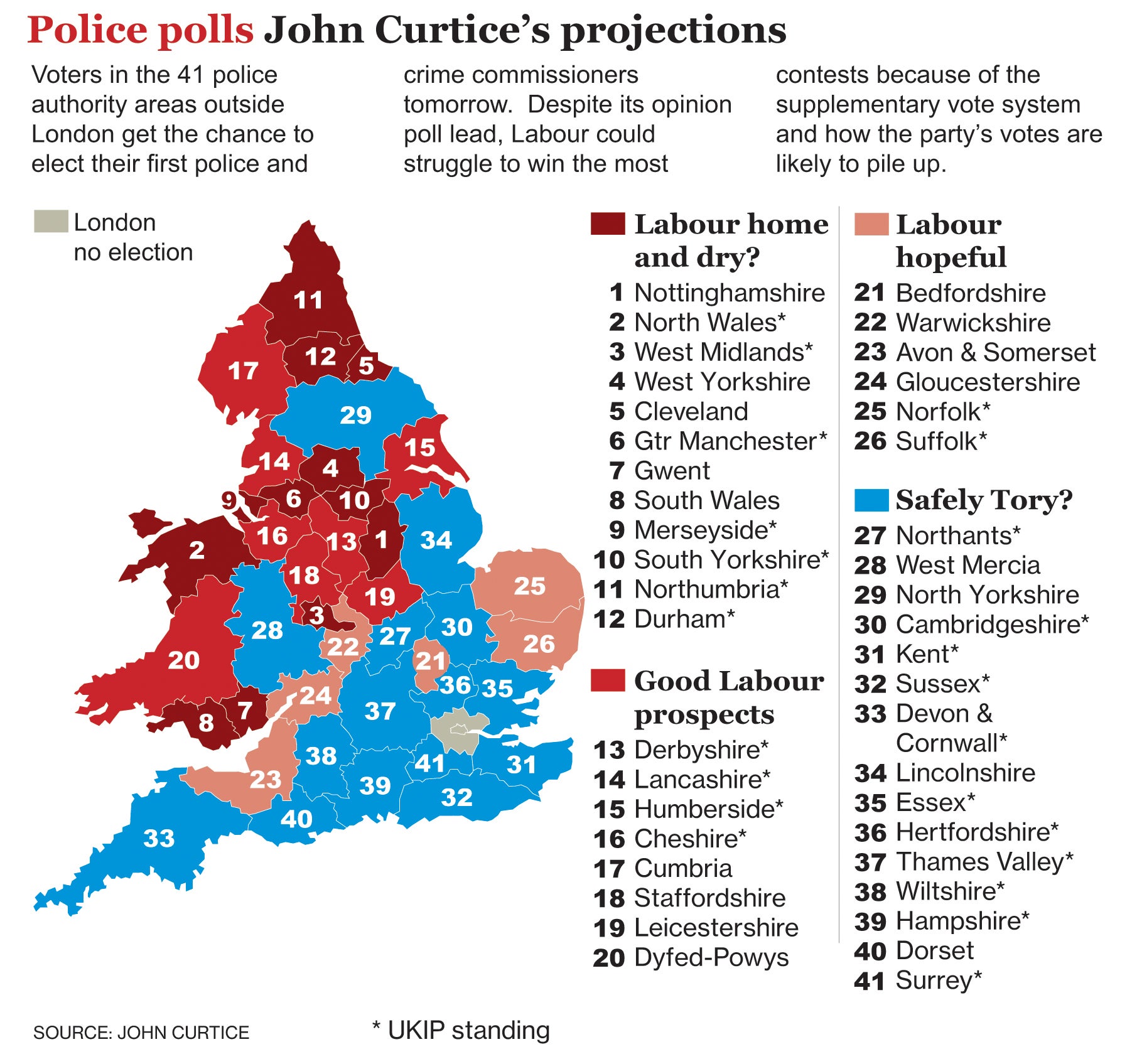Editorial: Police commissioners are worth voting for
Flawed or not, this week's ballot will give the public a say for the first time

For all the apathy that has attended proceedings so far, the election of the first Police and Crime Commissioners tomorrow is a far-reaching change to British law enforcement. It is also, despite significant flaws, a welcome one. All who have the opportunity to vote should do so.
Opponents of the scheme – of whom there are many – have no shortage of ammunition. Far from attracting the charismatic, independent, high-calibre figures that the plan's proponents hoped, the 192 candidates are a largely uninspiring bunch, counting a drearily high proportion of politicians and local officials among their number. The exclusion of several promising contenders because of minor brushes with the law in their youths, and the controversy over the inclusion of former Tory minister Michael Mates (now under investigation for electoral fraud) have not helped. Nor, for some, has the involvement of John Prescott.
Part of the blame must lie with the Prime Minister et al. In the face of public ennui, the Coalition's cheerleading of what began as a flagship initiative has been inexcusably lacklustre. Indeed, as the ballot has neared it has become almost non-existent. Meanwhile, between the costly deposit required to enter the race, and the Government's refusal to help pay for candidates' mailshots, the number of independents has dwindled. The majority of the names on the ballot papers are, therefore, backed by one of the three main political parties. Hardly much of an enticement for the increasingly mistrustful electorate, then. And not the shake-up of entrenched party politics that the plan's supporters claimed either.
All such criticisms are valid. As are concerns that PCCs' regions may be so large and their remits so ill-defined as to encourage meddling mission creep. But even so long a list of shortcomings does not add up to the compelling case against that naysayers (often with vested interests) aver.
At its most basic, the issue is one of accountability. As an institution of state power, the police service is almost unique in its opacity. The 41 regional forces are overseen by appointed police authorities (which elected PCCs will replace) with neither a formal link to the areas for which they are responsible nor any requirement that they either solicit citizens' views or explain decisions to them. Meanwhile, internal procedures, from senior pay settlements to misconduct hearings, are far from transparent. Altogether the system is antiquated, unresponsive, and appallingly open to abuse.
Individually, the vast majority of police men and women do a fantastic (and fantastically difficult) job. But a series of scandals – such as recent revelations over the Hillsborough disaster – have raised questions about the ability of the police to police themselves. Now, with funding set to fall by 20 per cent, and unpopular reforms under way, the mood on the front line is darkening. While elected PCCs are no sure solution to such challenges, nor need they be the costly figurehead of caricature. The post has real power: to divvy up budgets, to set priorities, even to hire and fire the Chief Constable. At their best, then, a PCC can be both much-needed link to the local community and high-profile champion for the force.
Turnout for tomorrow's elections is expected to be woeful, perhaps less than 20 per cent. But the matter does not end here. Only a handful of the first batch of PCCs need show some initiative to give other candidates – and local voters – a glimpse of the possibilities. This week's ballot is the beginning of a fundamental change in British policing. All who can should surely participate.
Join our commenting forum
Join thought-provoking conversations, follow other Independent readers and see their replies
Comments
Bookmark popover
Removed from bookmarks